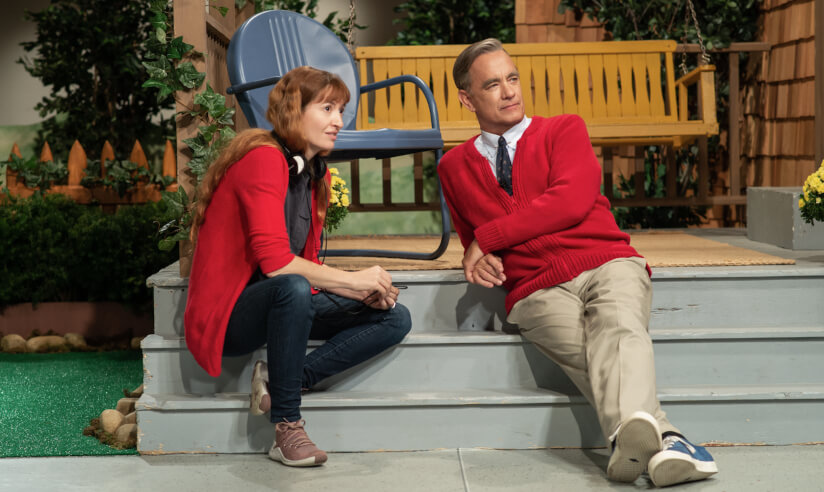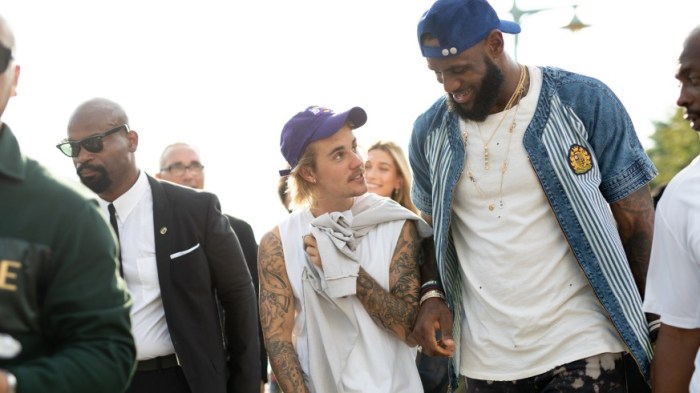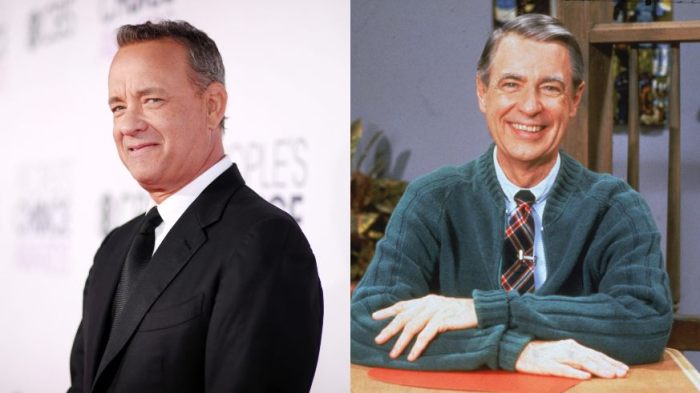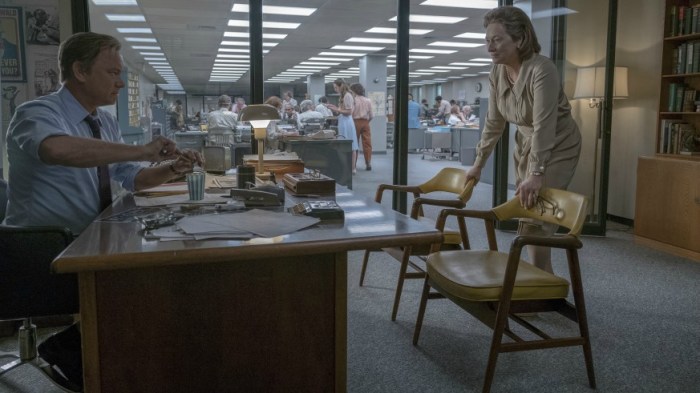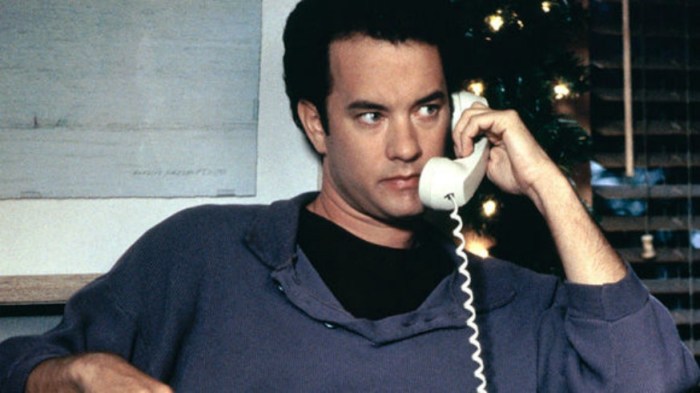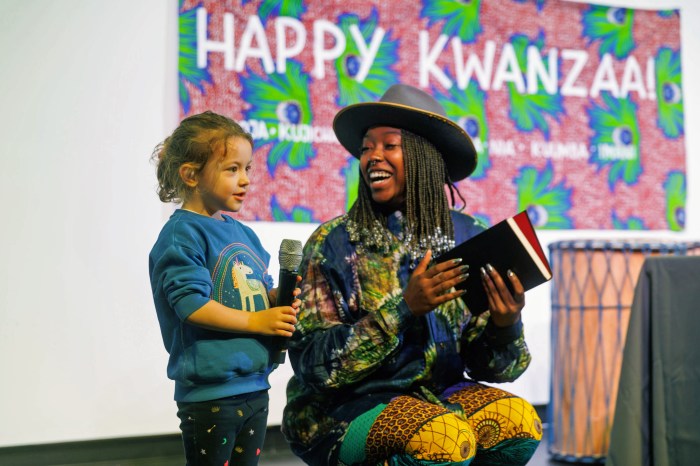The number one question I’ve been asked when I mention to people that I’ve seen the new film, “A Beautiful Day in the Neighborhood,” is “What is it about?” People want to know is the movie about Mister Rogers’ life? His show? A dark secret perhaps? Most are surprised when I shake my head —- it does showcase all of that (minus the dark secret of course), but it’s about so much more than one man; it’s about the impact he made on those around him.
So no, “A Beautiful Day in the Neighborhood” is not all about Fred Rogers’ life, but there is truly no better way to tell a story about such an incredibly astonishing person than by showing what he did to get that reputation.
Director Marielle Heller and journalist Tom Junod talk the beautiful impact of Fred Rogers in new film
The new film directed by Marielle Heller starring Tom Hanks was inspired by the 1998 Esquire article by Tom Junod, “Can You Say…Hero?,” and the real-life friendship between the two men. At the time, Junod was working as a hard-hitting journalist hunting down a bit more, let’s say, dark sorts of characters and was ultimately surprised when his editors assigned him to the soft-spoken man on TV who played with puppets and taught children about kindness.
“I didn’t know what to think. In my mind, he was someone like Captain Kangaroo or even this character that was parodied in skits on ‘Saturday Night Live.’ Later on, he became someone people loved, a hero. I didn’t know at first what I was going to be writing, to me, a hero wore a cape or was a war veteran from Vietnam. So when I was going to meet this person who was so admired I didn’t know what I was going to get,” says Junod.

The story follows a character similar to Junod, Lloyd Vogel, a journalist sent by his editors at Esquire to profile Mister Rogers for their ‘Hero Issue.’ Lloyd, dealing with his own set of problems stemming from a troublesome childhood, is openly reluctant about the whole ordeal.
When the script was first floating around Tinsel Town, producers wanted no one else to play Fred Rogers than Tom Hanks —- but the Oscar-winning actor was not as keen on the project. Then Marielle Heller signed on and everything changed.
“He and I had been looking for a project to do together for a long time,” says Heller. “He’s been a fan of mine since ‘The Diary of a Teenage Girl’ and we had wanted to work together. I think he knew if I was doing this project it wasn’t going to be a simple biopic, it had to have something more going on. I explained to him that I wasn’t interested in an imitation and I felt like we could really do something very special with this movie that had the potential to really touch people’s hearts in a deep way. I also explained to him I didn’t want a sketch version of Mister Rogers, I wanted him to just get the essence right. So he read the script with that in mind and he signed on right away.”
Getting the essence right is exactly what Hanks does, you don’t need any CGI or crazy make-up to help get the appearance of Fred Rogers. That came from many discussions with Heller and hours upon hours worth of watching footage of Rogers — it’s truly all in his behaviors and ability to connect with people. As we see in the movie, Lloyd as a journalist is about as cynical as you can get. Even in his first few meetings with Mister Rogers on the set of his show, and later on in even more personal settings, the reporter does not seem to have the patience for the kind nature and almost therapeutic answers Rogers gives when Lloyd grills him about his life. In fact, it’s almost as if the interview on screen is in reverse.
“Fred did have superpowers,” says Junod. “He worked really hard at living a life where he could guide others. One of Fred’s skills was to be able to see inside people, find out what they needed and give it to them. He did that with me. For multiple reasons at that time, I had lost trust in myself —- Fred trusted me. I think he saw something in me, and that process hasn’t ended. I’ve spent the past few months dedicating myself to talking about this movie because I think in some ways, Fred is still asking something from me.”
The film does take Mister Rogers fans down memory lane. The scenes that show the inside of his studio is almost exactly the way it looked when the show was on air decades ago. That was an important aspect to Marielle Heller.
“We hired these incredible puppet makers from ‘Sesame Street’ to recreate the puppets perfectly. The same with the set, we got the original blueprints and were able to recreate the set perfectly from the fabrics of the curtains to the couch — it just had to feel right, and when you saw it, you had to step back in time,” says Heller. “Every little detail we looked at. It wasn’t just about faking it, it was about getting it right so that anyone who had been a fan of the neighborhood would feel that. That also meant studying how they filmed it — how did their camera work? How did they edit? Any whiff of it feeling fake and you would have felt it.”

Both Heller and Junod have personal connections to the film, Junod with his friendship with Fred Rogers and Heller with growing up watching the show. Both feel as though this film is something special, and it is. It’s one of those films that you feel the whole audience is involved in — which is what Mister Rogers would have wanted.
“I cried reading the script. There are people who are saying ‘Wow, this is the movie I need right now’ and that was how I felt. I felt like it was the movie I needed to make,” says Heller. “I hope that it gives the audience a chance to re-examine themselves a bit. We were all children and we all have things that we are still healing from that we’re walking around with everyday and I think part of what Fred was helping us do was to reconnect to our childhoods.”
“This movie gives you the experience of Mister Rogers from the experience of people who he directly helped,” says Junod. “The kindness that Fred had, required practice. I think he was always asking the question: what do I need to do to achieve that kindness? I think he will ask the audience that as well.”
“A Beautiful Day in the Neighborhood” is now in theaters

